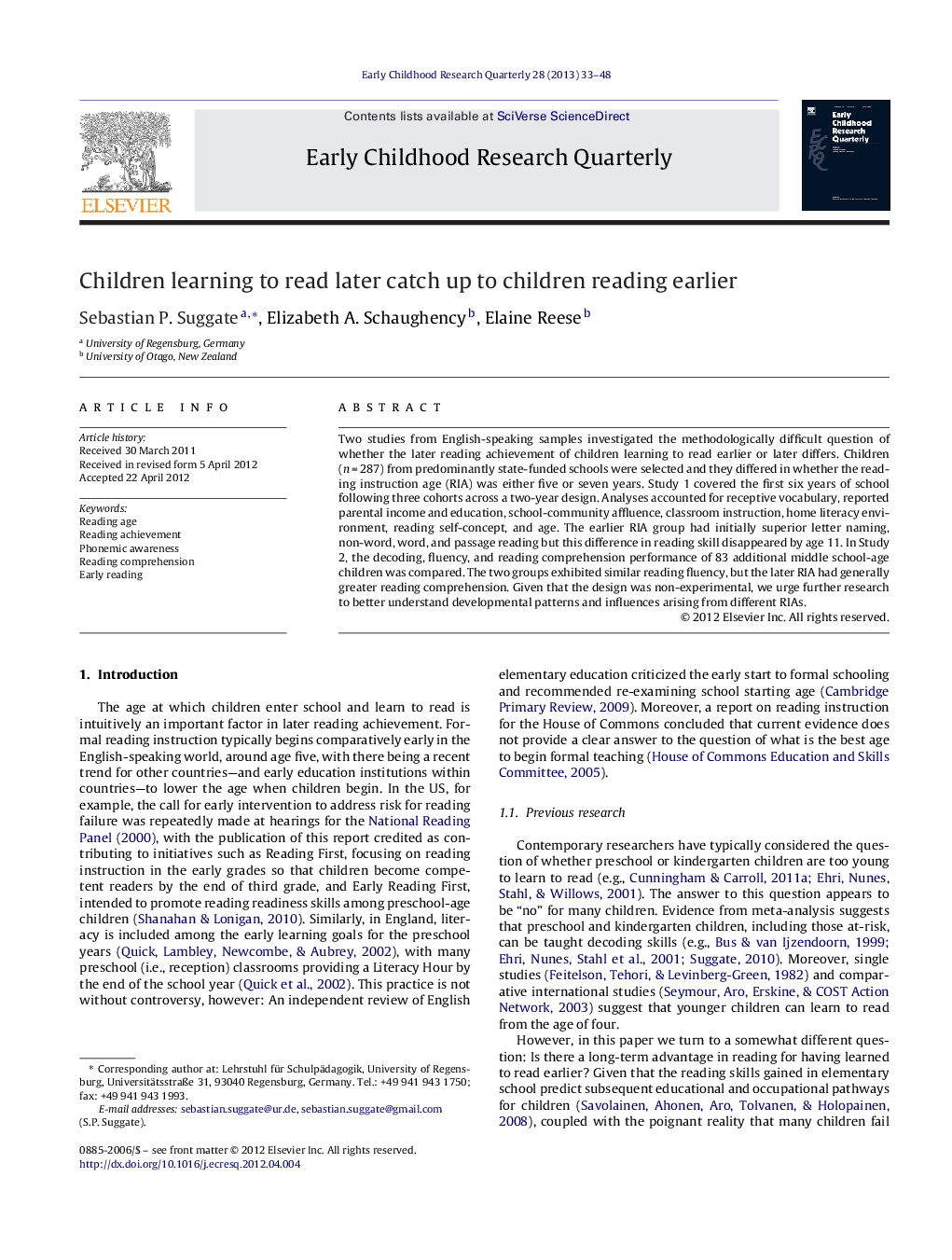| Article ID | Journal | Published Year | Pages | File Type |
|---|---|---|---|---|
| 353759 | Early Childhood Research Quarterly | 2013 | 16 Pages |
Two studies from English-speaking samples investigated the methodologically difficult question of whether the later reading achievement of children learning to read earlier or later differs. Children (n = 287) from predominantly state-funded schools were selected and they differed in whether the reading instruction age (RIA) was either five or seven years. Study 1 covered the first six years of school following three cohorts across a two-year design. Analyses accounted for receptive vocabulary, reported parental income and education, school-community affluence, classroom instruction, home literacy environment, reading self-concept, and age. The earlier RIA group had initially superior letter naming, non-word, word, and passage reading but this difference in reading skill disappeared by age 11. In Study 2, the decoding, fluency, and reading comprehension performance of 83 additional middle school-age children was compared. The two groups exhibited similar reading fluency, but the later RIA had generally greater reading comprehension. Given that the design was non-experimental, we urge further research to better understand developmental patterns and influences arising from different RIAs.
► Around age 10, children learning to read at seven had caught up to those learning at 5. ► Later starters had no long-term disadvantages in decoding and reading fluency. ► For whatever reason, the later starters had slightly better reading comprehension. ► Reading appears to be built on oral language, decoding, and reading skills. ► This research suggests some focus on teaching reading early could be relaxed.
